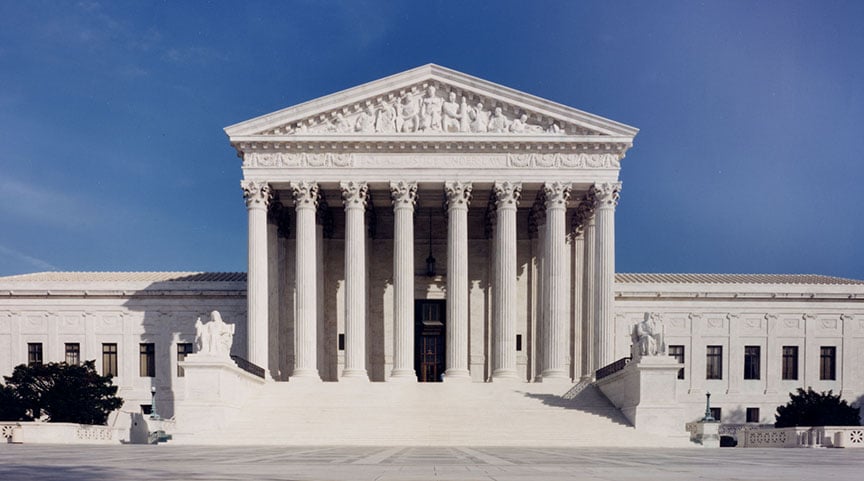Earlier today, the United States Supreme Court allowed a novel Texas law to remain in place that prohibits abortions after a fetal heartbeat is detected. As will be explained below, ACLL believes this is a good sign for what could be expected in June in Dobbs v. Jackson Women’s Health Organization, where the Supreme Court is being asked to overrule Roe v. Wade.
Earlier this year, Texas passed a law forbidding doctors from performing abortions on an unborn child when his or her heartbeat could be detected, which usually occurs at 6 weeks. The law’s enforcement mechanism was unique, not placing enforcement power in the hands of government officials but rather allowing private parties to sue the abortionists. Texas abortionists sued immediately, arguing that the law was unconstitutional. The Supreme Court agreed to hear the case on an expedited schedule to determine not whether the law was constitutional but whether the abortionists could sue to enjoin the law’s enforcement.
In an opinion written by Justice Neil Gorsuch and joined by the Court’s conservative bloc, the Court ruled against the abortionists. First, it rejected the abortionists’ arguments that federal courts could enjoin state judges and the clerks of state courts to stop them from filing or adjudicating cases that came before them. Importantly, the Court also rejected the abortionists’ argument that the Texas Attorney General should be enjoined because if he was, then nobody else would be able to enforce the law either.
Matt Clark, ACLL’s President, said, “The attempts to enjoin state judges, their clerks, and the Texas Attorney General were in reality attempts to kill the law before anyone ever tried to enforce it. Fortunately, the Court saw what the abortionists were trying to do, which went against the traditional rules for how lawsuits work, and shot their arguments down.”
The one part of the opinion where the conservative bloc disagreed among themselves was over whether several Texas officials, who were given authority by other Texas laws to discipline abortionists, could be enjoined from enforcing the law. Justices Gorsuch, Alito, Kavanaugh, and Barrett reasoned that they could. Justice Clarence Thomas, the Court’s most conservative justice, dissented. He argued that this particular Texas law excluded anyone else other than private parties from enforcing the law, and therefore the Texas officials could not be enjoined because they could not enforce it.
Clark said, “With all due respect to the other justices, Justice Thomas was correct. In statutory interpretation, statutes are supposed to be read together to form a harmonious whole, and specific provisions are supposed to govern if they conflict with general principles. Under those rules of statutory interpretation, only private parties could sue to enforce this law, and therefore Justice Thomas was right.”
Clark added, “Fortunately, the Court’s error on this point will not do much harm. Justice Gorsuch and the others argued that a court could stop these officials from enforcing the law, whereas Justice Thomas argued that the law itself stopped them from enforcing the law. Thus, Justice Gorsuch and the others held only that a court could order these officials not to enforce the law–which is what the law already said. Therefore, as a practical matter, the abortionists’ victory on this point is a victory in name only. In application, they won nothing significant.”
Finally, the Court rejected the argument of Justice Sonya Sotomayor, which was joined by Justices Stephen Breyer and Elena Kagan, that the Court’s decision “somehow ‘clears the way’ for the ‘nullification’ of federal law along the lines of what happened in the Jim Crow South.” Justice Gorsuch responded that her claim “not only wildly mischaracterizes the impact of today’s decision, it cheapens the gravity of past wrongs.”
As to what this tells us about what to expect in Dobbs, Clark said, “While today’s decision does not necessarily guarantee that the Court will overrule Roe in Dobbs, it is an encouraging sign. What it shows is that we have five justices who have demonstrated that they care more about carefully following the Constitution than they do about the left’s political pressure when it comes to abortion. If they approach Dobbs the same way that they did this case, then I think, in June, we will finally see the end of Roe.”


